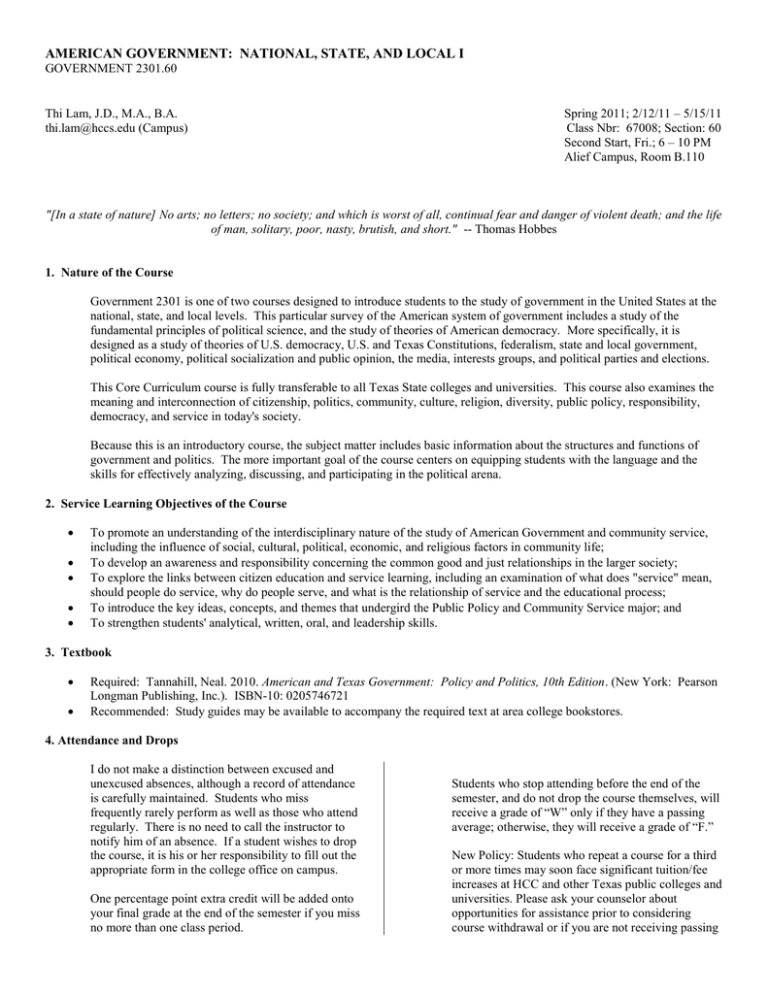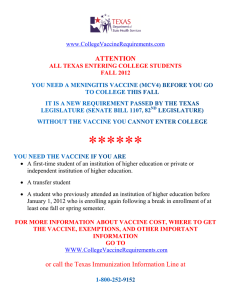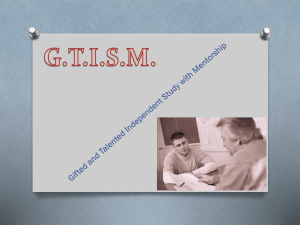
AMERICAN GOVERNMENT: NATIONAL, STATE, AND LOCAL I
GOVERNMENT 2301.60
Thi Lam, J.D., M.A., B.A.
thi.lam@hccs.edu (Campus)
Spring 2011; 2/12/11 – 5/15/11
Class Nbr: 67008; Section: 60
Second Start, Fri.; 6 – 10 PM
Alief Campus, Room B.110
"[In a state of nature] No arts; no letters; no society; and which is worst of all, continual fear and danger of violent death; and the life
of man, solitary, poor, nasty, brutish, and short." -- Thomas Hobbes
1. Nature of the Course
Government 2301 is one of two courses designed to introduce students to the study of government in the United States at the
national, state, and local levels. This particular survey of the American system of government includes a study of the
fundamental principles of political science, and the study of theories of American democracy. More specifically, it is
designed as a study of theories of U.S. democracy, U.S. and Texas Constitutions, federalism, state and local government,
political economy, political socialization and public opinion, the media, interests groups, and political parties and elections.
This Core Curriculum course is fully transferable to all Texas State colleges and universities. This course also examines the
meaning and interconnection of citizenship, politics, community, culture, religion, diversity, public policy, responsibility,
democracy, and service in today's society.
Because this is an introductory course, the subject matter includes basic information about the structures and functions of
government and politics. The more important goal of the course centers on equipping students with the language and the
skills for effectively analyzing, discussing, and participating in the political arena.
2. Service Learning Objectives of the Course
To promote an understanding of the interdisciplinary nature of the study of American Government and community service,
including the influence of social, cultural, political, economic, and religious factors in community life;
To develop an awareness and responsibility concerning the common good and just relationships in the larger society;
To explore the links between citizen education and service learning, including an examination of what does "service" mean,
should people do service, why do people serve, and what is the relationship of service and the educational process;
To introduce the key ideas, concepts, and themes that undergird the Public Policy and Community Service major; and
To strengthen students' analytical, written, oral, and leadership skills.
3. Textbook
Required: Tannahill, Neal. 2010. American and Texas Government: Policy and Politics, 10th Edition. (New York: Pearson
Longman Publishing, Inc.). ISBN-10: 0205746721
Recommended: Study guides may be available to accompany the required text at area college bookstores.
4. Attendance and Drops
I do not make a distinction between excused and
unexcused absences, although a record of attendance
is carefully maintained. Students who miss
frequently rarely perform as well as those who attend
regularly. There is no need to call the instructor to
notify him of an absence. If a student wishes to drop
the course, it is his or her responsibility to fill out the
appropriate form in the college office on campus.
One percentage point extra credit will be added onto
your final grade at the end of the semester if you miss
no more than one class period.
Students who stop attending before the end of the
semester, and do not drop the course themselves, will
receive a grade of “W” only if they have a passing
average; otherwise, they will receive a grade of “F.”
New Policy: Students who repeat a course for a third
or more times may soon face significant tuition/fee
increases at HCC and other Texas public colleges and
universities. Please ask your counselor about
opportunities for assistance prior to considering
course withdrawal or if you are not receiving passing
2
grades.
transfer issues.
International Students: Receiving a W in a course
may affect the status of your student Visa. Once a W
is given for the course, it will not be changed to an F
because of the visa consideration. Please contact the
International Student Office at 713-718-8520 if you
have any questions about your visa status and other
A student may drop the course for any reason up to
February 17th, 2010 at 4:30 p.m. After this date, a
student will receive the grade that he/she has earned.
College policy prohibits faculty from submitting a
grade of W after the official drop date.
5. Advising and Counseling Services
Confidential sessions with education counselors will help students understand admissions, registration, entrance testing
requirements, degree planning, transfer issues, and career counseling. Houston Community College counselors also maintain
a local referral base in order to provide appropriate referrals to students with personal or family issues that may require longterm solutions.
6. Disability (ADA) Notification
Any student with a documented disability (e.g. physical, learning, psychiatric, vision, hearing, etc) who needs to arrange
reasonable accommodations must contact the appropriate HCC Disability Support Service (DSS) Counselor at the beginning
of each semester. Faculty are authorized to provide only the accommodations requested by the Disability Support Services
Office.
7. Scholastic Dishonesty
Students are responsible for conducting themselves with honor and integrity in fulfilling course requirements. Scholastic
dishonesty includes, but is not limited to, cheating on a test, plagiarism, and collusion. Please refer to your student handbook
for definitions of these terms. The penalty for scholastic dishonesty is failure of the course.
8. Grading
I will administer four closed-book, in-class exams.
They will consist of multiple-choice and shortanswer questions. There will be no comprehensive
final examination for this course. Periodic reading
quizzes, group exercises, video presentations, and
other techniques assist the student to monitor their
learning and success in meeting the course
objectives.
At the end of the course, you will have the option of
submitting a four-to-six (4-6) page Critical Analysis
Paper (CAP), which can be used to replace the lowest
exam grade. The CAP instructions, topics, and
grading criteria can be found on a separate handout.
All make-up exams will be administered on the same
day as the final exam.
Directions for Exams:
Arrive on time.
Clear everything off your desk, except for a pencil.
No talking while the exam is underway; keep eyes on own paper.
Do not wrinkle your scantron.
Erase completely; no smudges on the scantron.
Write clearly and legibly; I cannot give you credit if I can’t read your handwriting.
9. Service Learning
The instructor is authorized to offer bonus points, up to twelve (12), to add to each major examination. Students are encouraged to
take advantage of these opportunities. Bonus credits may be earned by performing community service during the course of the current
semester. There are many government-related activities to choose from. They include, but are not limited to:
Political Participation and Leadership
Voting (with approved form)
Attending Political Party Conventions
Volunteering with a Campaign
Writing to (or E-mailing) an Elected or
= 6 points
= 6 points
= 6 points
3
Appointed Official and receiving a Response
= 6 points
Traditional Community Service
Instructions: Select one of the partnerships from the
authorized list. After completing twelve (12) hours
of community service cover the following points in a
narrative essay format. Important: You must turn in
your time sheet with this form!
3.
=============
Note: If you are volunteering at this site for
the second time this semester, answer
questions 4-6 only.
http://www.hccs.edu/system/Instructional_Services/s
erLrning/contactsites.html
Note: If you are volunteering at this site for the first
time this semester, answer questions 1-3 only.
1.
2.
Describe the agency where you provided
service learning in terms of the services it
provides to the community and what you did
there.
What have you learned, observed, or
become aware of through this experience?
What differences do you think you make to
the people you serve?
4.
Describe the agency where you provided
service learning in terms of the services it
provides to the community and what you did
there.
5.
How does service learning relate to your
long-term goals?
6.
Describe an incident or tell a story that
occurred during your service learning
experience that is meaningful to you.
10. Educational Outcomes:
The Objective of Political Science as a Core Curriculum course is to facilitate one’s understanding and evaluation of the
nature of governments and of the political actions of people concerning government and public policy. This particular
curriculum is designed to implement these requirements as set forth by the State of Texas, and the Houston Community
College System and Southwest College Government Departments. Upon completion of the core curriculum component in
political science, the students enrolled in this course should be able to:
Establish broad and multiple perspectives on the individual in relationship to the larger society and world in which
he or she lives, and to understand the responsibilities of living in a culturally and ethnically diversified world;
Stimulate a capacity to discuss and reflect upon individual, political, economic, and social aspects of life in order to
understand ways in which to be a responsible member of society;
Recognize the importance of maintaining health and wellness;
Develop a capacity to use knowledge of how technology and science affect their lives;
Develop personal values for ethical behavior;
Develop the ability to make aesthetic judgments;
Use logical reasoning in problem solving; and
Integrate knowledge and understand the interrelationships of the scholarly disciplines.
11. Outcome Measures
Students in a Core Curriculum course are assessed on
their ability to demonstrate all or most of the
following proficiencies:
Reading: Reading at the college level means the
ability to analyze and interpret a variety of printed
materials-books, articles, and documents-within the
contemporary context of the discipline. A core
curriculum should offer students the opportunity to
master both general methods of analyzing printed
materials and specific methods for analyzing the
subject matter of individual disciplines.
Writing: Competency in writing is the ability to
produce clear, correct, and coherent prose adapted to
purpose, occasion, and audience. Students of political
4
science need to be familiar with the writing process:
how to discover a topic; how to develop and organize
it; and how to phrase it effectively for their audience.
These abilities can only be acquired through practice
and refection.
Speaking: Competence in speaking is the ability to
communicate orally in clear, coherent, and persuasive
language appropriate to purpose, occasion, and
audience. Developing this competency includes
acquiring poise and developing control of the
language through experience in making presentations
to small groups, to large groups, and through the
media.
Critical Thinking: Critical thinking, or intellectual
reasoning, which is necessarily exercised in those
competencies described above, is the ability to
organize and analyze ideas and data using logical
methods. “Data” here includes written texts, visual
presentations, artifacts, and experimental and
statistical material. Critical thinking embraces
methods applying both qualitative and quantitative
skills analytically and creatively to appropriate
political subject matter in order to evaluate arguments
and to construct alternative strategies. Problem
solving is one of the applications of critical thinking,
used to address an identified task.
Computer Literacy: Computer literacy at the college
level means the ability to use computer-based
technologies in communicating, solving problems,
and acquiring information. Core-educated students
should have an understanding of the limits, problems,
and possibilities associated with the use of
technology, and should have the tools necessary to
evaluate and learn new technologies as they become
available.
12. Important Dates
February 18th
February 15th
February 22nd
March 14-20
April 21
April 22-24
May 8th
May 9-15
May 15
1st Day of Class
Last Day for Drop/Add/Swap
Official Date of Record
Spring Break
Last Day for Administrative Withdrawal
Easter Holiday
Instruction Ends
Final Examinations
Semester Ends
===================
READING SCHEDULE
May be revised throughout the semester.
Week Of
2/19
Syllabus and Overview of Course
Supplemental Reading: Logical Fallacies (Critical Thinking in Policy Formulation)
2/26
Introduction: “Government, Politics, and the Policymaking Process”
Ch. 1: “A Changing America in a Changing World”
3/5
Ch. 2: “The American Constitution”
Ch. 3: “The Federal System”
3/12
Exam #1
Ch. 4: “Public Opinion”
3/19
Spring Break (No Classes)
3/26
Ch. 5: “Political Participation”
Ch. 6: “The Media”
4/2
Exam #2
Ch. 7: “Interest Groups”
5
4/9
Ch. 8: “Political Parties”
Ch. 9: “Elections”
4/16
Ch. 18: “The People, Economy, and Political Culture of Texas”
Ch. 19: “The Texas Constitution”
4/23
Exam #3
Ch. 20: “The Federal Context of Texas Policymaking”
4/30
Ch. 21: “Political Participation in Texas”
Ch. 22: “Interest Groups in Texas”
5/7
Ch. 23: “Political Parties in Texas”
Ch. 24: “Texas Elections”
5/14
Exam #4 (Final Exam)
==============
Service Learning Student Reflection
Instructions: Select one of the partnerships from the
authorized list. After completing twelve (12) hours of
community service cover the following points in a narrative
essay format. Important: You must turn in your time sheet
with this form!
http://www.hccs.edu/system/Instructional_Services/serLrning/
contactsites.html
3.
Note: If you are volunteering at this site for the second time
this semester, answer questions 4-6 only.
4.
Describe the agency where you provided service
learning in terms of the services it provides to the
community and what you did there.
5.
How does service learning relate to your long-term
goals?
6.
Describe an incident or tell a story that occurred
during your service learning experience that is
meaningful to you.
Note: If you are volunteering at this site for the first time this
semester, answer questions 1-3 only.
1.
2.
Describe the agency where you provided service
learning in terms of the services it provides to the
community and what you did there.
What have you learned, observed, or become aware
of through this experience?
What differences do you think you make to the
people you serve?



